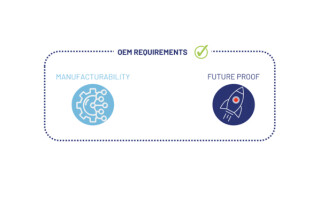Industrial Internet Consortium Announces New LTE for Metro Testbed
March 03, 2020
News

The Industrial Internet Consortium announced the Long Term Evolution (LTE) for Metro Testbed led by Huawei and partners.
The Industrial Internet Consortium announced the Long Term Evolution (LTE) for Metro Testbed led by Huawei and partners. According to the IIC, it is the first testbed for the rail transportation industry.
“The LTE for Metro Testbed will serve as a benchmark and technical resource for future urban rail communications,” said executive director of the IIC, Dr. Richard Soley, in a press release. “The testbed is part of the IIC Intelligent Transport Systems (ITS) initiative, in which IIC members are working on best practices and technologies to help guide the transportation industry.”
Within metro systems, multiple types of wireless communication services are used for train control, and for management between devices on a moving train and facilities on the ground. There are a number of wireless services within metro systems that include Communication Based Train Control (CBTC), Passenger Information System (PIS), CCTV monitoring, trunking communication and Train Control, and Monitoring Systems (TCMS). To guarantee critical service, two WiFi-based networks carry critical and noncritical services respectively, operating with vendor-specific extensions, per the release. They are not standardized or interoperable.
The IIC LTE for Metro Testbed plans to replace existing non-standard networks with a standard single-technology-based network. LTE for Metro technology features high bandwidth, great mobility and multi-service Quality of Service (QoS) capabilities.
To promote the testing, verification and global adoption of LTE for Metro technology, as well as the formulation of international LTE for Metro standards, Huawei has been actively participating in LTE for Metro standards development led by the China Association of Metros (CAMET).
Huawei will fully use its expertise to support many phases of the testbed and collaborate with partners to complete involved tests. More vendors and rail operators are welcome to join the operation of the testbed, which will draw wider participation across the industry to make the tests more representative.
For more information, visit www.iiconsortium.org.




